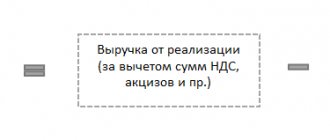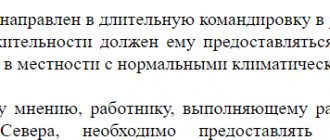Topic: Dismissal of a part-time worker
Rules for using services and information
users of the electronic services system “Onlineinspection.rf”
The rules for the use of services and information by users (hereinafter referred to as the Rules) of the system of electronic services “Onlineinspektsiya.rf” (hereinafter referred to as the System) apply to all electronic services of the System, without exception, accessed through sections and pages of the Internet portal https://onlineinspektsiya. RF (hereinafter referred to as the Portal). These Rules govern the behavior of all, without exception, registered users in the System and unregistered visitors to the Portal.
1. Terms and concepts used in these Rules
1.1 These Rules use the following terms and concepts:
System – system of electronic services “Onlineinspektsiya.rf”.
Services are basic and additional tools offered to the User for interaction with authorities.
The portal is an information resource created for the purpose of interaction of citizens with the System, located on the Internet at the address: https://onlineinspektsiya.rf.
The portal administration is officials of the Federal Service for Labor and Employment and representatives of the contractor under the state contract for the provision of technical support of the Portal, who carry out the operational management of the Portal.
User – a person registered on the Portal who is invited to use the services provided by the Portal.
Moderator is a representative of the portal Administration who processes user messages.
Moderation is the process of processing and analyzing the compliance of the User’s message with the provisions of these Rules for the use of services and information by users of the online services system “Onlineinspektsiya.rf” and the User Agreement.
2. General rules
2.1. To access the publication of messages on the Portal (discussions, comments, questions and use of any other means of interaction between the User and the System), each Portal User must read and agree with these Rules.
2.2. After reading the texts of the Rules of Use and the User Agreement, confirming agreement with them on the registration page or sending a message, each User, by these actions, enters into an agreement with the Portal Administration to regulate their relationship.
2.3. The Portal Administration has the right to carry out moderation through representatives of the Portal Administration - moderators.
2.4. These Rules may be amended by amending the relevant order of the Federal Service for Labor and Employment.
3. User registration
3.1. The Portal has a user registration system. Only registered users have the opportunity to interact interactively with the System services.
3.2. To register on the Portal, the User specifies a valid email address - notifications about the current status of published messages (appeals) will be sent to it, and selects a conditional User name (“nickname”).
3.3. When registering a User, the System requests a password for the login being registered. This password must be known only to the User and must not be disclosed to third parties. The password used can be changed by the User in a special section of the Portal – User Profile.
3.4. When registering a User, the System initiates the authorization process by sending an SMS message with an activation code to the User’s phone number specified during registration. The received password must be entered in a special field in the window that opens. Only after entering the password will the account be activated.
3.5. For users who have an account on the Public Services Portal (https://www.gosuslugi.ru/), the opportunity to authorize using the login and password for this account is provided. If registration is carried out using this method, verification via SMS message is excluded.
4. Publication of appeals
4.1. Each registered User can publish an appeal.
4.2. Appeals are published in accordance with the proposed classifier of problem categories.
4.3. To create a request, you must fill out the request form. In the application form, the User must indicate his real data.
4.4. The user must fill in the following fields about himself as an applicant:
— the applicant’s residential address;
— last name, first name, patronymic (if any) of the applicant;
— the applicant’s mobile phone number (if there is no mobile phone required when registering in the System, the applicant has the right to submit an application directly to the email address of the territorial body of Rostrud. The list of territorial bodies of Rostrud is posted on the unified information portal of the Federal Service for Labor and Employment on the Internet "(https://rostrud.ru/). If the User has not previously registered on the Portal, an activation code will be sent to this specified phone number, which must be entered in a special field in the window that appears in order to activate the User’s account and contact him ;
— email address to which notifications about the progress of solving the problem will be sent.
The Portal Administration ensures non-disclosure to third parties of all user data entered during the registration process, except for cases stipulated by the User Agreement.
4.5. The user must fill in the following fields about the place of work:
- region, city and exact actual address of the organization of which he is an employee;
— information about the organization: name, legal form, legal address, information about the director;
— information about your position and period of work;
— information about third parties whose mention is required to fully describe the problem.
4.6. The user needs to fill in the following fields about his problem:
— explanations of the current situation;
— photographic materials.
Information entered in the “Explanation of the current situation” field becomes public and should be of a general nature. In this field it is prohibited to mention the personal data of third parties. If the applicant violates this paragraph of the rules, the User himself is responsible for the publication of information.
Photographic materials are classified information by default and can be published publicly at the discretion of the User.
4.7. Before sending the application, the User agrees with these Rules for the use of services and information by System users and accepts the agreement on the processing of personal data. In case of disagreement with these conditions, each User has the right to refuse to use the resource and use other types of communication offered on the official resources of the department.
4.8. The Portal uses post-moderation of messages. Messages are published immediately after they are posted by users and, if they violate these Rules, they are deleted, or the moderator sends a letter to the User with a request to eliminate the violation.
4.9. Reasons for refusal to publish a message or proposal to make adjustments:
- ignoring spelling rules and profanity, the message is not written in the state language of the Russian Federation or contains a large number of spelling and syntax errors, is written in capital letters, contains profanity, including in a veiled form;
- the lack of a logical connection between the sentences in the address, which does not allow one to understand the general meaning of the described case;
— extremism, discrimination (in all forms: racial, ethnic, age, gender, religious, social, etc.);
- commercial purposes and advertising - if, in the opinion of the moderator, the published information is directly or indirectly aimed at making a profit;
- insufficient description or unfounded accusations - the moderator reserves the right to reject a case if the information specified in it does not allow us to draw a conclusion about an existing offense;
— cases in which there is no specific indication of the problem and there are questions of a rhetorical nature are not moderated;
— cases that do not correspond to the category chosen by the User are not moderated;
— messages that duplicate previously published messages are not moderated (the text of the message completely repeats the text of the previous message, that is, it does not contain new information).
4.10. The user can familiarize himself with the response to the published appeal in his personal account, having previously completed authorization on the Portal.
Thank you for your attention and understanding!
The organization needs to do some work, but the volume is not enough for full employment. In such cases, employees are hired part-time. The article reflects the main points of regulation of part-time work: the procedure for concluding an employment contract with a part-time employee, the duration of his work, remuneration for the specified category of workers, leave and other features.
Hiring on a part-time basis is a common phenomenon. As a rule, this form of employment is beneficial to both parties - the employer and the employee.
For reference: part-time work is the performance by an employee, in his free time from his main job, of another permanently paid job for the same or another employer under the terms of an employment contract (Article 343 of the Labor Code of the Republic of Belarus (hereinafter referred to as the Labor Code)).
Note that any employee can work part-time, regardless of his specialty, salary, etc. However, in order for the work to be recognized as part-time work, and not a combination of professions or overtime work, the following conditions must be met:
1) part-time work is performed during free time from the main job (weekends and holidays, time off, breaks between shifts, lunch time and vacation periods);
2) the job must be another permanently paid one;
3) the work must be performed under the terms of an employment contract, a contract that must indicate that the work is a part-time job.
Important! Part-time work can be concluded with either one or several employers, while labor legislation prohibits requiring the consent of the employer at the place of main work when hiring, except in cases provided for by legislative acts (part three of Article 343 of the Labor Code).
Types of part-time jobs
There are 2 types of part-time jobs:
1) internal (employment contracts for the main job and part-time work are concluded with the same employer);
2) external (a part-time employment contract was concluded with another employer, different from the employer with whom the employment contract for the main job was concluded).
In case of internal part-time work, the work is performed in another position or specialty, except in cases established by law (teachers, medical workers).
From the editor:
At the same time Art. 343 of the Labor Code does not contain a direct prohibition on performing work in the same profession (position). In other words, an internal part-time worker can perform work in the same profession (position) in which he works at his main job, if this is stipulated in the second written employment contract concluded with him. Obviously, in this case, part-time work should be separated from the main job. Taking into account the fact that part-time work is another job, which the legislator separates and delimits from the main job, 2 employment contracts must be concluded with an internal part-time worker - for the main job and for part-time work. Each of them must necessarily contain the conditions for performing the above work (in the first contract - the conditions of the main job, in the second - the conditions of part-time work). In addition, the employee must keep 2 time sheets: one for his main job, the second for his part-time job. The work schedule for each of the 2 employment contracts must be determined separately: for example, the internal labor regulations must separately stipulate the work and rest schedule of the main employees and part-time workers, or 2 separate work schedules (shifts) must be drawn up. An employee's wages must be calculated separately for his main job and his part-time job.
With external part-time work, you can work in any specialty or position.
Prohibitions and restrictions when working part-time
Part-time work for persons under 18 years of age is prohibited, in jobs with harmful and (or) dangerous working conditions, as well as if the legislation provides for a reduced working time for the main job and part-time work (Article 348 of the Labor Code).
In addition to the above cases, the Labor Code provides for the following restrictions on part-time work in order to prevent possible abuses and offenses on the part of employees:
1) it is not allowed to hold 2 management positions in state organizations on a part-time basis, except for the positions of foremen and foremen, unless otherwise established by law (part one of Article 348 of the Labor Code);
2) it is prohibited to work part-time for persons under 18 years of age, for pregnant women, as well as in jobs with hazardous working conditions, if the main job is associated with the same conditions (part two of Article 348 of the Labor Code);
3) when working part-time in government organizations, the joint work of relatives associated with direct subordination and control is prohibited (part three of Article 348, part one of Article 27 of the Labor Code);
4) it is not allowed to employ part-time positions in financially responsible positions of persons convicted of mercenary crimes, if the criminal record is not expunged or expunged in the prescribed manner, as well as for those positions or types of activities that are prohibited by a court verdict for certain categories of citizens (part four of Art. 348 TK).
Important! For certain categories of employees, restrictions on part-time work may be established by law.
Documents presented when concluding an employment contract with a part-time worker
When registering an internal part-time job, an employment contract for the main job has already been concluded with this employer, so the employer already has all the necessary documents or has previously presented them.
From the editor:
To conclude an employment contract with an internal part-time worker, a written application from the employee and an employment contract signed by the parties is sufficient. It should be noted that although such a statement is not classified as one of the documents that the employee is required to submit (Article 26 of the Labor Code), nevertheless, its writing does not contradict the regulatory legal acts of the Republic of Belarus. Thus, for the employer, the statement confirms the employee’s will to enter into an employment relationship, and for the employee it is proof of the initiative to conclude an employment contract.
In addition, the application for employment is included in the employee’s personal file (paragraph 7, clause 6 of the Instruction on the procedure for creating, maintaining and storing personal files of employees, approved by Resolution of the Belkomarchiv dated March 26, 2004 No. 2).
When applying for an external part-time job, the employee is required to present documents according to the general list (Article 26 of the Labor Code), with some exceptions provided for part-time employment, namely:
1) passport or other identity document;
2) a diploma or other document on education and professional training confirming the right to perform this work;
3) when hiring for hard work or work with harmful and (or) dangerous working conditions - a certificate about the nature and conditions of work at the main place of work.
From the editor:
When hired for a part-time job, the presentation by an employee of a document containing information about the position held, the nature and working conditions at the main place of work (with the exception of hiring for work with harmful and (or) dangerous working conditions) is not provided for in the Labor Code. Therefore, the employer has no right to demand such a document when hiring a part-time worker. Consequently, if an employee intends to hide circumstances that prevent the conclusion of a part-time employment contract due to restrictions established by law, then the employer has practically no opportunity to confirm these circumstances. However, if necessary, it is advisable for the employer to request information from the employee about the position he holds at his main place of work.
Important! Hiring without the specified documents is not permitted. It is prohibited to require documents not provided for by law when concluding an employment contract.
For reference: information about part-time work can be entered into the employee’s work book at the place of main work, subject to the simultaneous presence of:
– the employee’s wishes;
– a document confirming part-time work (clause 6 of the Instructions on the procedure for maintaining work records of employees, approved by Resolution of the Ministry of Labor of the Republic of Belarus dated 03/09/1998 No. 30, as amended and supplemented).
Duration of part-time work
The length of working time established by the employer for part-time workers cannot exceed half of the normal working time - 40 hours per week (Article 112 of the Labor Code).
Example
A clinic doctor engaged exclusively in outpatient treatment of patients is assigned a working day of 5.5 hours. Therefore, if this position is occupied by a part-time worker, then during one working day he can perform duties for no more than 2 hours and 45 minutes.
By agreement between the employee and the employer, a specific distribution of working time for performing job duties can be established, which is drawn up in the form of a work schedule or an entry in the employment contract and employment order.
Guarantees and compensation for part-time workers
For clarity, we present the guarantees and compensation provided for part-time workers in the form of a table.
Salary
Part-time workers are paid in proportion to the time worked.
When standard tasks are established for part-time workers with time-based wages, payment is calculated based on the final results for the amount of work actually completed.
Bonuses for part-time workers, payment of bonuses, additional payments, and other types of material incentives and remunerations are carried out in the general manner established for all employees on the basis of a collective agreement, agreement and employment contract.
For reference: the conditions and procedure for calculating average earnings when part-time workers go on labor leave, as well as for paying monetary compensation for unused labor leave and in other cases, are defined in the Instructions on the procedure for calculating average earnings maintained in cases provided for by law, approved by the resolution of the Ministry of Labor of the Republic of Belarus dated 04/10/2000 No. 47.
Rules for posting a part-time employee
Sending a part-time employee on a business trip is permitted during his free time from his main job. In this case, before issuing a business trip order, it is necessary to obtain the written consent of the employer from the main place of work (clause 3 of the Instruction on the procedure and amount of reimbursement of expenses for business trips within the Republic of Belarus, approved by Resolution of the Ministry of Finance of the Republic of Belarus dated April 12, 2000 No. 35).
Dismissal of a part-time worker
Dismissal of part-time employees can be made on the same grounds as termination of employment contracts with other employees. However, in comparison with the legal status of other employees hired at the main place of work, the legal status of a part-time worker has some features, incl. regarding the termination of employment relations with him.
In addition to the general grounds, an employment contract with a part-time worker can be terminated if an employee is hired for whom this work will be the main one (Article 350 of the Labor Code).
Despite the fact that the legislation does not provide for a procedure for terminating an employment contract under Art. 350 of the Labor Code, in the main part it will not differ from dismissal for other innocent reasons provided for by the Labor Code.
Termination of an employment contract with an employee working part-time must be formalized by order (instruction) of the employer (clause 15 of the first part of Article 55 of the Labor Code).
We remind you that the date of dismissal under Art. 350 of the Labor Code in the dismissal order must be determined by the day preceding the day of hiring the employee for whom this work will be the main one.
Important! Termination of employment relations at the main place of work does not entail the termination of part-time employment relations. To terminate a part-time employment contract, there must be a separate basis.
Upon termination of the employment contract, severance pay is not paid to the part-time employee.







